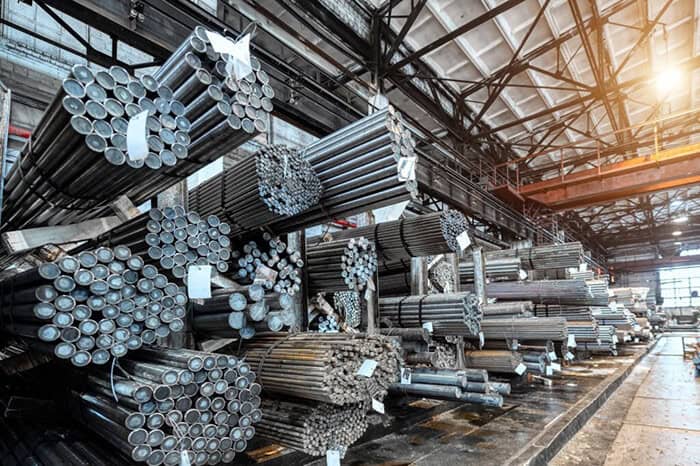It is a material that is suitable for the hardening process of manufacturing steels and has a certain level of mechanical properties and is widely used in the sectors where machinery is produced and manufactured. Manufacturing steels, which are frequently preferred in industrial production in terms of their cost and usage characteristics, can also be considered as one of the stages of steel materials leading to final production.
1- Concept and Classification of Steel
Steel material, which is frequently used in manufacturing sectors such as industry, is a material consisting of iron and carbon alloy. Apart from the carbon element, different ratios of alloy elements can also be found in steel. The reason for the presence of other elements in various proportions can be explained as better meeting the usage requirements of the steel material.
Alloy values or production method can be changed to produce a steel with harder, higher toughness or stainless properties. Steel, most of the content of which is composed of iron element, can be classified on the basis of conditions such as area of use, composition of the material, preferred methods in production and quality level. In this classification, one of the steel types to be determined according to the field of use is manufacturing steel.
2- What is Fabrication Steel?
Manufacturing steels can be known as carbon steel because they have a high amount of carbon. In addition, plain carbon or unalloyed machine steel expressions can also be used. Manufacturing steels contain around 0.20% – 0.60% carbon and their hardenability increases. Namely, the carbon ratio is increased in materials whose hardness ratio is desired to be increased. In addition, the alloy ratio should be reduced while increasing the carbon ratio for high hardening. The toughness level of steel also increases and decreases inversely with the amount of carbon. Manufacturing steels are widely preferred in the machine manufacturing sector and machine parts, especially where high durability is not required.
3- How to Produce Fabrication Steel?
Manufacturing steels are steel types suitable for heat treatment or hardening depending on the carbon ratio they contain. Cementation can be applied to steels with low carbon level. Hardness and durability on the material surface and softness and toughness in the core are provided by hardening. In addition, surface hardening can be done by applying flame or induction process to high carbon manufacturing steels.
4- Characteristics of Manufacturing Steel
Manufacturing steelhas moderate mechanical properties depending on the carbon ratio in its content. In manufacturing steels with high carbon ratio, the suitability for welding process is less than in steels with low carbon ratio. However, such steels are more suitable for surface hardening processes. Inductions for such operations can be hardened. Machining is also applied in all parts produced using manufacturing steel, and manufacturing steel with different quality levels is generally preferred with the addition of sulfur.
5- Important Considerations and Price Level for Fabrication Steel
There are quality levels such as SAE 1030, SAE 1040, SAE 1050 and SAE 1060 for manufacturing steels. In addition to these levels, quality classes such as C30R, C40R, C50R and C60R can also be added for these materials. In the quality classifications starting with the C symbol, it is concluded that sulfur has been added to the manufacturing steel. Rates in the range of0.020% – 0.035% are mostly preferred for sulfur addition.
Manufacturing steels, which are widely preferred in machines and parts that do not require high strength power, are used in parts such as gears, pin, pins, bolts and axles. In addition, manufacturing steel is used in the production of hook and mold sets and in the construction of various components in the automotive sector. The fact that manufacturing steels have lower costs also positively affects the frequency of production and use.
Prices of manufacturing steels used for manufacturing many products in various sectors may vary according to the manufacturer, the dimensions, quality and weight of the material. At this point, people who need manufacturing steel can get detailed information about the price from our company.

